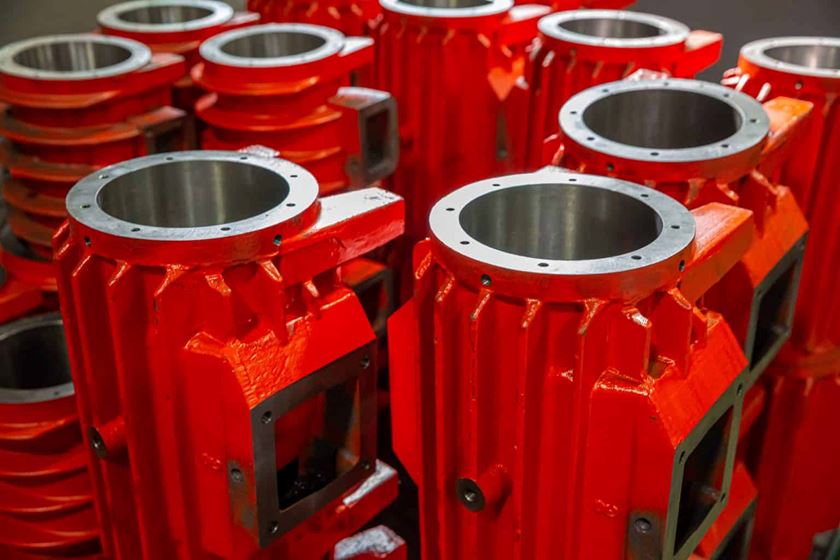Published
Redneck Jokes and Finishing
At the ECOAT 2012 Conference in Orlando, Fla., last month, we addressed the topic “What Underperforming Finishers Don’t Know (That Good Ones Do).”
#management
Columnist,
Profit 360, LLC
At the ECOAT 2012 Conference in Orlando, Fla., last month, we addressed the topic “What Underperforming Finishers Don’t Know (That Good Ones Do).” In order to tackle the issue, we first needed to define an underperforming finisher. Earlier this year I assembled a group of seasoned coatings industry professionals with 51 years of industry experience between them in part to complete the sentence, “Your coatings plant may be out of control if ….”
Sounds a bit like the beginning to one of Jeff Foxworthy’s “redneck” jokes, does it not? Here are the results:
Your Coatings Plant May Be Out of Control If . . .
Supervisors scramble around frantically trying to respond to urgent matters while …
Front line workers (rackers, unrackers, inspectors, etc.) stand around and wait for direction—evidence that the operation is throwing labor dollars at the wrong problems.
The facility’s general manager is planted in the office, dolling out directives across a desk or, way worse, across cyberspace via emails, while Rome is burning on the shop floor.
Individuals revolve through the supervisor positions frequently. At some point one has to wonder if perhaps the supervisor isn’t the problem.
Team members waste energy on departmental feuding—operations blames sales, administration blames operations, sales blames administration, and so on—rather than focusing on improvement.
Customers are blamed for their expectations being too high. If your organization has the guts to take on the order, you best have the guts to do it right.
Suppliers become the scapegoats for poor quality (sometimes with good reason, but often times not).
You rely on tribal knowledge (“Joe knows how to do it”) instead of on a system or documentation that communicates expectations to the people who do the work.
Your team replaces solid tactical execution with long hours of firefighting, fixing symptoms like reworking defects, absenteeism and expediting late orders, as opposed to fixing root causes like process control, employee selection and equipment utilization.
Your team chases nickels while dollars fly out the window. I once ran a company that was posting $40,000 unfavorable monthly labor variances, while our controller wasted the better part of a week trying to save us $200 per month on uniform expenses. We were out of control.
Virtually every order is late and thus expedited. This is a never-ending spiral. Late orders become expedites that steal capacity that should have been available for on-time orders, thus creating more expedites and more late orders.
You have production standards but nobody looks at them.
Your metrics (productivity, efficiency, quality, safety, etc.) posted in the plant are months out of date. This is evidence of a team that doesn’t follow through on its improvement initiatives. What other great ideas have been initiated but not followed through on?
The orders on your floor are not labeled and, thus, there is no way to know for sure what is what.
The orders on your floor are labeled, but the dates on the labels or routers are not current—a clear sign that the order has been sitting there for weeks or even months. Another red flag is the rejected part or order covered in shop dust—how long has that been there?
Meetings are cancelled—perhaps the biggest pet peeve for suppliers to the finishing industry. Few things frustrate more than driving hundreds of miles for a confirmed meeting, paying for a hotel room and arriving on time only to be told that “something came up” and the meeting needs to be cancelled. Everybody has a true emergency at some point, but if you’re regularly cancelling meetings with suppliers or your associates in order to address emergencies, your plant is out of control.
Your people don’t work safely. Employees climb over tanks without fall protection, walkways are not identified, PPE requirements are not followed, fork trucks fly around, their drivers back up without looking, and wires hang from electrical cabinets. You get the picture.
You disregard basic environmental controls. Not every plant has a world-class environmental management system, but I once saw waste effluent running out of a coater’s wash line, out an overhead door and down his driveway to who knows where. He was out of control.
Zero S (i.e., a lack of 5S). Old orders abound; materials, chemicals and waste are not labeled. Tools are not where they should be, floors are dirty, etc.
Parts awaiting rework sit all over the plant.
Damage to equipment or facilities goes unrepaired—posts hit by fork trucks haven’t been repaired (for the reason they were damaged in the first place, see item 17), equipment is broken and not repaired or has been fixed with bailing wire and duct tape, limit switches are bypassed, etc.
Do any of the above describe a finisher you know? In the June edition of “Never Finished” we’ll explore how world-class finishers got past the above and built high-performing organizations. Stay tuned.
To learn more visit American Finishing Resources.
RELATED CONTENT
-
Pretreatment for Painting
Better adhesion, enhanced corrosion and blister resistance, and reduced coating-part interactions make pretreatment a must.
-
Preparation for Electroplating
What you should know about cleaning and electrocleaning.
-
Top Reasons to Switch to a Better Cleaning Fluid
Venesia Hurtubise from MicroCare says switching to the new modern cleaning fluids will have a positive impact on your cleaning process.
















